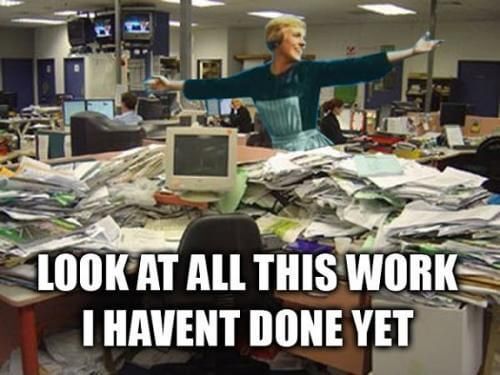
How To Implement A Cropper Tool In Your Frontend Vue Application
January 11, 2021
The Important Role Of Documentation
January 25, 2021

Many software developers have to deal with an ever increasing workload. Not to mention scope creep and the feeling that there’s always something more to be done to improve your code. Here are 9 tips for keeping your workload under control and preventing burnout.
1. Breakdown your tasks
Making sure that you have a task breakdown of everything that needs to be done is great to get an overview of your work. You might find that getting your tasks all laid out is enough to help you relax and get it all done
2. Learn to estimate task times
Books and studies have been written about estimating software tasks. Fortunately it is a skill that can also be learned. Estimations don’t have to be perfect but they can help you aim for a target that can be hit reliably
3. Do one thing at a time
This is time management 101. Multi-tasking or constant context switching is detrimental to productivity. Just plan out your day and take it one thing at a time.
4. Communicate, communicate, communicate
Tell your manager what you’re doing and your progress and don’t be afraid to ask for help. I believe that you can always communicate more. Never be afraid of communicating too much about your progress. You can setup your own channel in your chat app such as Teams where you can share with your team what you’re doing throughout the day.
5. Simplify the tasks
Ok so you’re communicating everything but the work isn’t becoming any less. That’s where the next tip comes in. The idea is to try and make the work feel less by simplifying the tasks but still keeping to requirements. Often the stress comes from trying to do the job perfectly. Or putting in pieces that don’t add any value to the product.
Something simple is often good enough.
6. Take breaks often
Maybe this tip goes without saying, but it’s easy to forget to take a break when you’re really stuck trying to solve a difficult problem. Taking a short break at least once an hour can really make a difference to your mood and help you be more productive when you’re at your desk. Stepping away from a problem can also often help you solve it quicker.
7. Get enough sleep
Getting enough sleep is often easier said than done. But a few steps such as darkening your room, avoiding lengthy daytime naps, avoiding caffeine 4 hours before bedtime and avoiding work at night can really improve sleep quality. Talk to your physician if you’re having trouble sleeping.
8. Plan to rest
The idea of taking time off can easily be put off or feel like slacking, but planning your leave days well can make a big difference. Often people keep their leave for the end of year, but it is a good idea to space leave out throughout the year. Keep in mind that it can take a few days to really switch off from work and recharge. Try making a break at least 7 consecutive days so that you can come back refreshed and ready for action.
9. Ask for more time
If this is an option, ask for more time. Clients and managers appreciate being kept in the loop of things earlier rather than later and appreciate that you want to deliver value. Trying to reach an impossible deadline may lead to a lot of unnecessary stress and an inferior product.
Conclusion
If you run out of options it may be needed to work more hours, but this is the fast track to burning out, and low quality work, which is no help to anyone. Make sure you approach work with a plan and you can keep the avalanche of tasks from burning you out.







